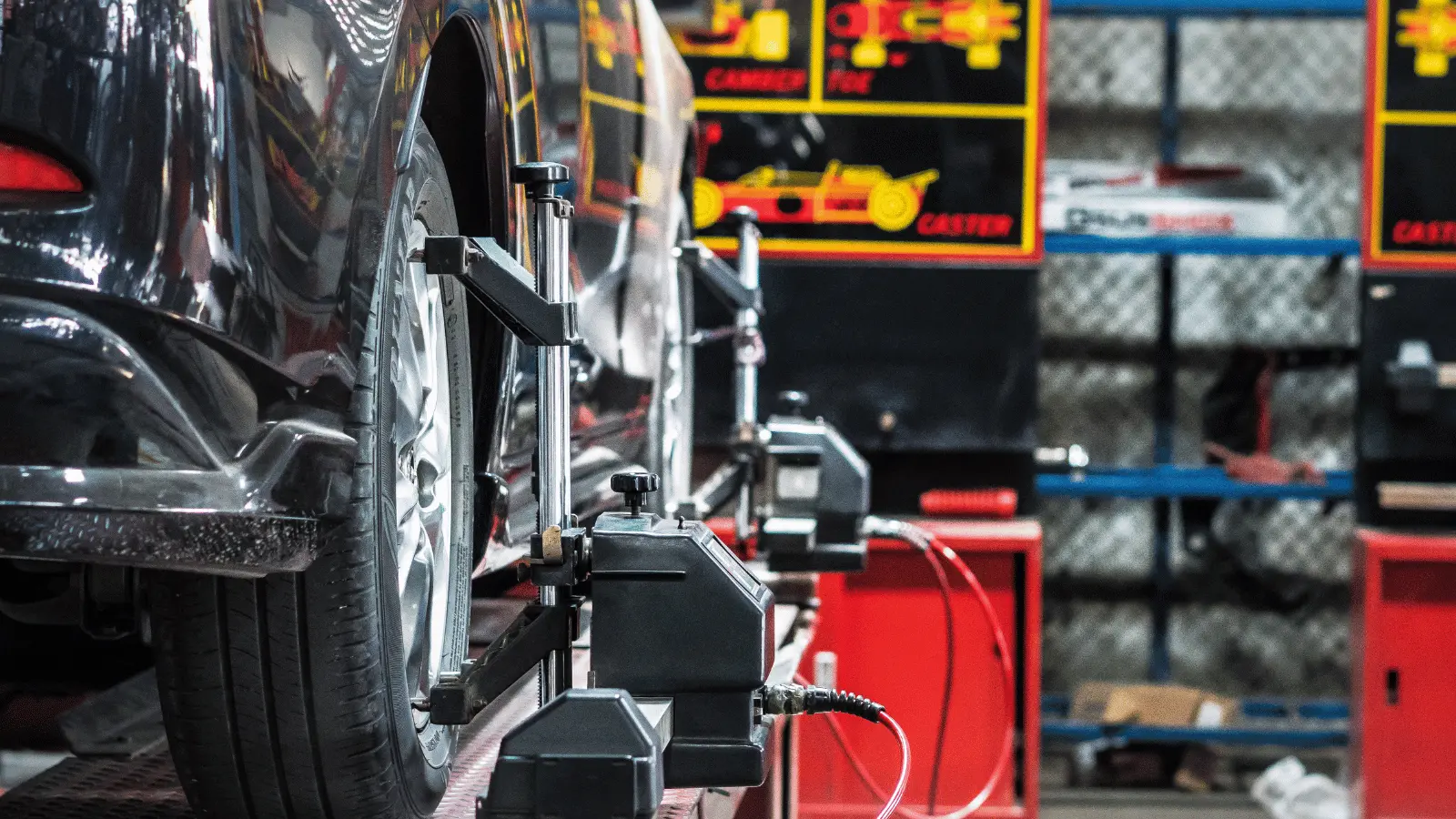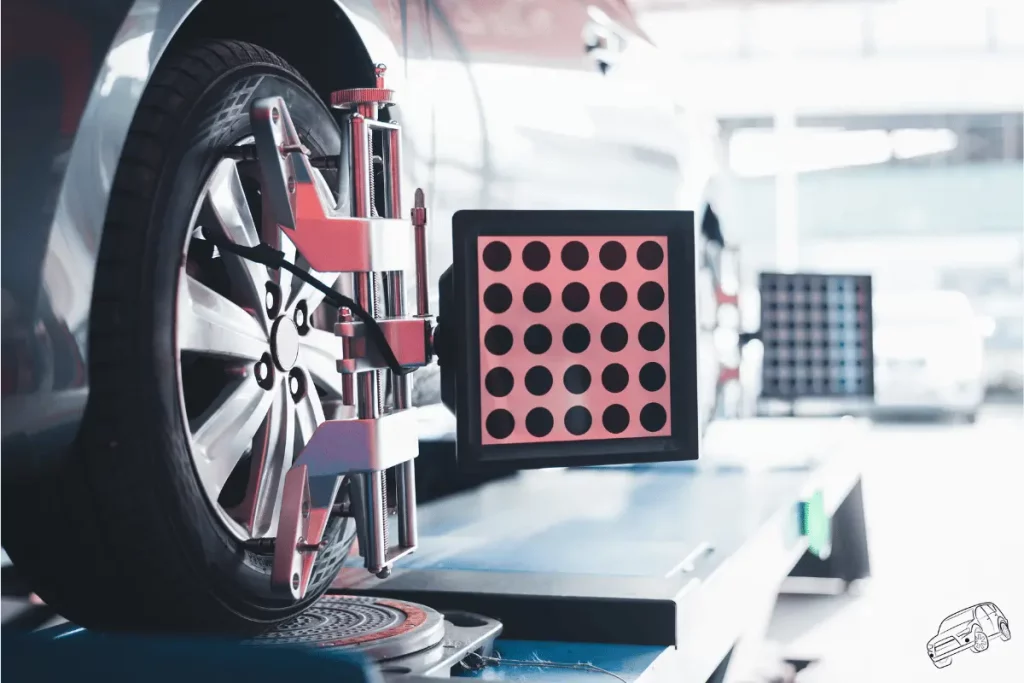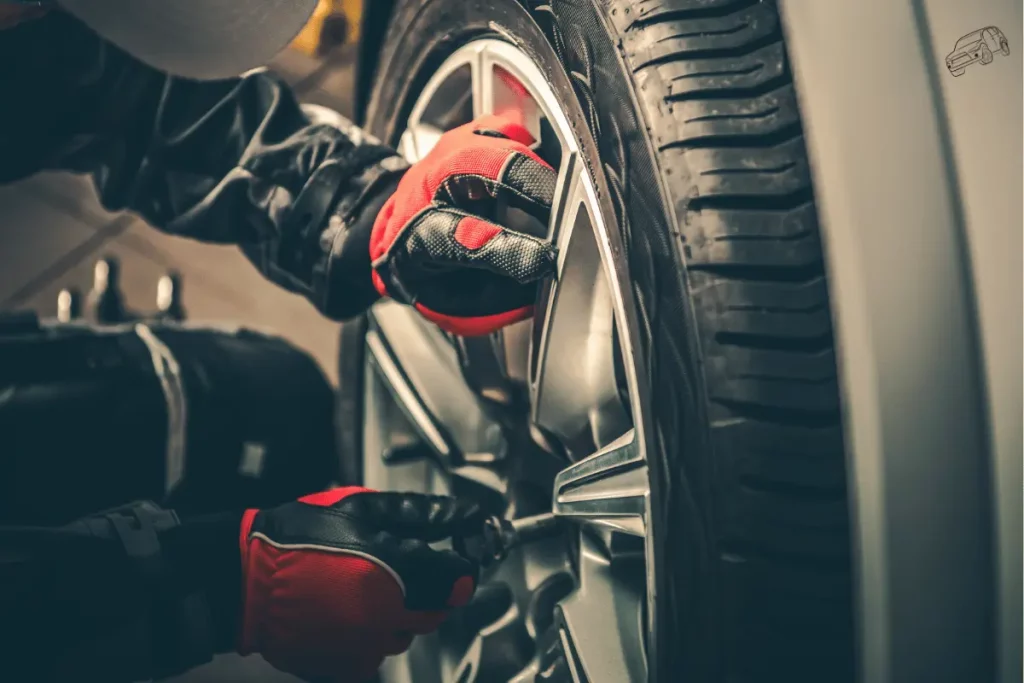Yes, trailer tires need balancing to ensure even wear and longer tire life. Balancing trailer tires is essential for safe and smooth towing.
It helps reduce vibration, enhance tire performance, and prevent premature wear. Tire maintenance is crucial for safety and efficiency when towing trailers. Properly balanced trailer tires can prevent uneven wear and vibration, reducing the risk of accidents and breakdowns.
By understanding the importance of balancing trailer tires, you can ensure a safe and enjoyable towing experience. This article will delve into the reasons why trailer tires need balancing and provide essential tips for maintaining them. Whether you’re a seasoned trailer owner or a beginner, this information from Automotivean website will help you make informed decisions about tire maintenance.
The Importance Of Balancing Trailer Tires
Ensuring safe towing and improving tire longevity are crucial factors in maintaining trailer tires. Many people overlook the importance of balancing trailer tires, but this practice can significantly impact the overall performance and safety of your trailer. Let’s delve into why balancing trailer tires is essential to ensure a smooth towing experience and increase the lifespan of your tires.
Ensuring Safe Towing- Do Trailer Tires Need Balancing
Properly balanced trailer tires contribute to the stability and control of the trailer while towing, reducing the risk of swaying or wobbling. When trailer tires unbalanced, they can cause the trailer to shake and sway, leading to dangerous driving conditions and potential accidents. To ensure safe towing, it is essential to prioritize tire balancing as part of regular tire maintenance.
Improving Tire Longevity- Do Trailer Tires Need Balancing
By balancing trailer tires, you can distribute the weight and pressure evenly across the tire surface, minimizing uneven wear and tear. This helps in preventing premature tire wear and extends the overall lifespan of the tires. A balanced tire also reduces the strain on the suspension system and other components of the trailer, further enhancing the longevity of the tires and the overall safety of the towing experience.
How Balancing Works
Trailer tires need balancing to ensure even weight distribution and prevent uneven wear and tear. Proper balancing ensures a smoother ride and prolongs the tires’ lifespan, reducing the risk of blowouts and safety hazards on the road. Regular maintenance of trailer tires through balancing is crucial for optimal performance and safety.
Understanding Tire Balance- Do Trailer Tires Need Balancing
Understanding how tire balance works is essential for maintaining your trailer’s safety and performance. Tire balance refers to the even distribution of weight around the entire wheel and tire assembly. When a tire properly balanced, it rotates smoothly without causing vibrations that can affect your trailer’s handling and cause excessive tire wear.
Balancing Methods- Do Trailer Tires Need Balancing
There are two main methods used to balance trailer tires: static balancing and dynamic balancing.
- Static Balancing: This method involves placing the tire and wheel assembly on a balancing machine that measures the imbalances. Small weights are then added or removed as needed to achieve an even distribution of weight around the tire. Due to its simplicity and effectiveness, static balancing is the most common method used for trailer tires. It ensures that the tire is balanced while not in motion.
- Dynamic Balancing: Unlike static balancing, dynamic balancing involves balancing the tire while it is rotating. This method is more commonly used for high-speed tires, such as those used on vehicles. It utilizes a special balancing machine that measures imbalances as the tire spins. Weights are then added or removed to achieve balance while the tire is in motion. While dynamic balancing is not typically necessary for trailer tires, it can be beneficial if you frequently tow your trailer at high speeds.
Both static and dynamic balancing methods aim to ensure that your trailer tires rotate smoothly and evenly, minimizing vibrations and promoting longer tire life. By maintaining proper tire balance, you can also improve fuel efficiency and reduce the risk of tire failure.
Signs Your Trailer Tires Are Out Of Balance
Signs Your Trailer Tires Are Out of Balance
When it comes to maintaining your trailer’s performance and safety, paying attention to the balance of your tires is essential. Trailer tires, like any other vehicle tires, can become unbalanced over time, leading to various issues that can affect your towing experience. In this section, we will discuss two important signs that indicate your trailer tires are out of balance: vibrations while towing and uneven tire wear.
Vibrations While Towing- Do Trailer Tires Need Balancing
Vibrations are often the most noticeable sign that your trailer tires lack balance. If you feel a distinct shaking or vibrating sensation while towing your trailer, it is highly likely that your tires are out of balance. These vibrations can not only make your towing experience uncomfortable but also indicate an increased risk of tire damage and potential loss of control.
When your trailer tires unbalanced, they create uneven weight distribution, which leads to vibrations in the wheels. These vibrations can felt in the steering wheel, floorboard, or even through the entire trailer. If you experience these vibrations, it is crucial to address the issue promptly to prevent further damage and potential safety hazards.
Uneven Tire Wear- Do Trailer Tires Need Balancing
Uneven tire wear is another clear indication that your trailer tires are out of balance. When tires are not properly balanced, certain areas of the tire tread wear more quickly than others. This can observed as uneven patterns of wear on the tire surface, such as excessive wear on one side, in the middle, or on the edges.
Uneven tire wear not only compromises the longevity of your trailer tires but also affects their overall performance and safety. When tires wear unevenly, their ability to grip the road decreases, increasing the risk of skidding or hydroplaning in wet conditions. Additionally, uneven tire wear can also lead to decreased fuel efficiency and extra expenses as you may need to replace tires more frequently.
Whether you notice vibrations while towing or uneven tire wear, it is crucial to address these signs of tire imbalance promptly. Taking the necessary actions will not only enhance your towing experience by reducing vibrations but also ensure the safety and longevity of your trailer tires for years to come.
Benefits Of Balancing Trailer Tires
Balancing trailer tires enhances stability, extends tire life, and ensures a smoother ride. Properly balanced tires reduce vibration and improve the overall towing experience. Regular balancing is crucial for maintaining safety and maximizing tire performance for trailers.
Enhanced Safety
Balancing trailer tires plays a crucial role in ensuring enhanced safety during towing adventures. When trailer tires are properly balanced, they reduce the risk of vibrations and wobbling, which can lead to potential accidents on the road. These vibrations can cause unnecessary stress on the tires and other components of the trailer, compromising their performance and longevity. With balanced trailer tires, you can enjoy a smoother ride, improved handling, and better control over your trailer.
Better Fuel Efficiency
Another significant benefit of balancing trailer tires is better fuel efficiency. Unbalanced tires can cause uneven wear and tear, leading to increased rolling resistance. This means your towing vehicle needs to work harder to overcome the resistance, resulting in higher fuel consumption. By balancing your trailer tires, you can minimize the rolling resistance, allowing your vehicle to operate more efficiently and ultimately save fuel. This not only reduces your carbon footprint but also saves you money on fuel expenses.
Balancing Vs. Rotating Trailer Tires
When it comes to maintaining trailer tires, balancing and rotating play vital roles in ensuring optimal performance and longevity.
Distinguishing Between The Two-
Balancing: Balancing involves equalizing weight distribution to prevent vibrations and uneven wear.
Rotating: Rotating tires involves moving them to different positions on the trailer to promote even tread wear.
Importance Of Both Practices
Balancing: Prevents vibrations that can lead to premature tire wear and ensures a smoother ride.
Rotating: Helps distribute wear evenly across all tires, extending their lifespan and improving overall performance.
Diy Vs. Professional Balancing
When deciding between DIY and professional balancing for your trailer tires, it’s important to weigh the pros and cons of each approach. Here’s a look at DIY vs. professional balancing:
Pros And Cons
DIY balancing can save time and money, but it may not be as precise as professional balancing.
Professional balancing ensures accuracy and expertise, but it comes with a higher cost.
When To Seek Professional Help
If you notice vibrations or uneven tire wear, it’s best to seek professional help for balancing.
Professional assistance is recommended for trailers carrying heavy loads or traveling long distances.
Common Misconceptions About Trailer Tire Balancing
Common misconceptions about trailer tire balancing can lead to improper maintenance and potential safety hazards. Addressing these myths is essential for ensuring the longevity and performance of your trailer tires.
Myth: Trailer Tires Don’t Need Balancing
Contrary to popular belief, trailer tires need proper balancing to ensure optimal performance and longevity. Balancing trailer tires helps distribute the weight evenly, reducing wear and tear and providing a smoother ride. Failing to balance trailer tires can lead to uneven tread wear and compromised road stability, which can pose safety risks for both the vehicle and its passengers.
Addressing Other Misconceptions
In addition to the misconception that trailer tires don’t need balancing, there are other misconceptions about trailer tires that can impact their maintenance and safety. These include misunderstandings about suitable tire pressure for trailers, the impact of weight distribution on tire wear, and the importance of regular tire inspections.
Frequently Asked Questions Of Do Trailer Tires Need Balancing
Do Trailer Tires Need To Be Balanced?
Yes, trailer tires need to be balanced to ensure even wear and optimize performance. Balancing helps enhance safety and prolong tire life.
How Do I Know If My Trailer Tires Are Out Of Balance?
You can tell if your trailer tires are out of balance by noticing vibration at certain speeds, uneven tire wear, or steering wheel wobbling. If you experience any of these signs, it is best to have your tires balanced by a professional to ensure safety and smooth operation.
Do You Balance 13 Inch Trailer Tires?
Yes, 13-inch trailer tires need to be balanced to ensure smooth and safe operation on the road.
Are Trailer Tires Supposed To Wobble?
Trailer tires are not supposed to wobble. Wobbling tires indicate a potential problem that needs to be addressed. It could be due to issues with tire balance, alignment, or suspension. Regular maintenance and inspections can help identify and fix any wobbling issues, ensuring safer towing experiences.
Do Trailer Tires Need Balancing?
Yes, trailer tires need to be balanced to ensure safe and smooth towing. Balancing helps reduce vibration and uneven tread wear.
Why Is Balancing Trailer Tires Important?
Balancing trailer tires is important to prevent excessive tire wear, improve fuel efficiency, and minimize the risk of tire failure during travel.
Conclusion
In sum, balancing your trailer tires is crucial for ensuring a smooth and safe ride. By addressing potential imbalances, you can extend tire lifespan and reduce the risk of damage or accidents. With proper tire maintenance, you’ll not only save money in the long run but also enjoy a more pleasant towing experience.


